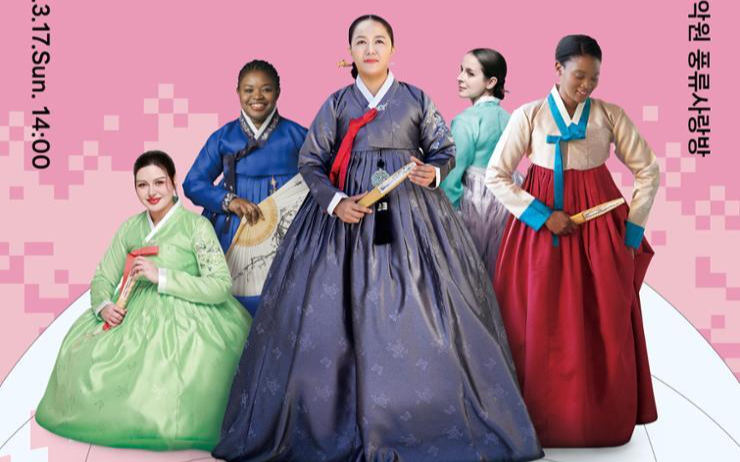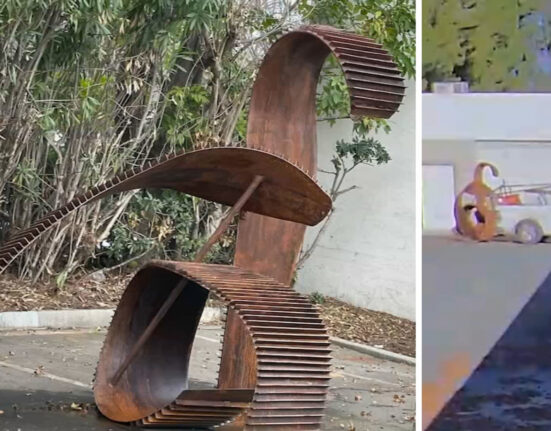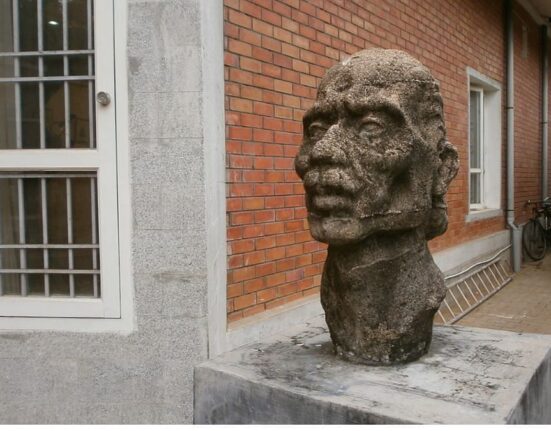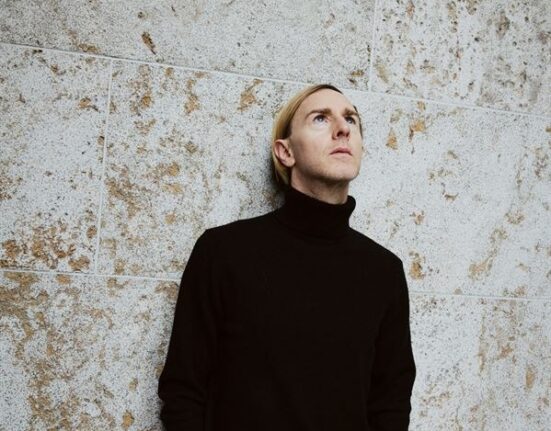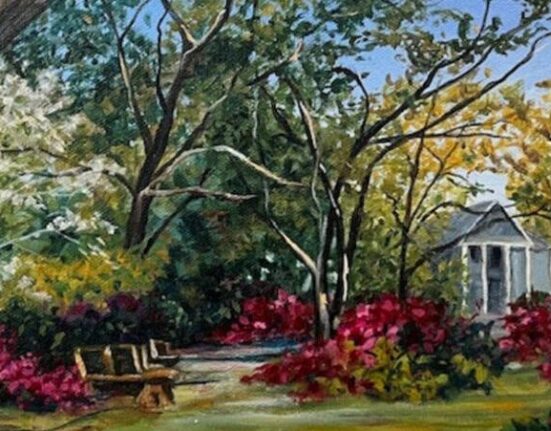
The poster for “Global Heungboga”
By Kwon Mee-yoo
“Pansori,” Korea’s traditional musical storytelling, is crossing cultural borders as four international artists will perform in “Global Heungboga” alongside their teacher, Min Hye-sung.
Scheduled to be held at the National Gugak Center in southern Seoul on Sunday, this event coincides with the 60th anniversary of pansori’s designation as one of Korea’s National Intangible Cultural Heritage.
Participants in this unique performance include Anna Yates-Lu from Germany, Laure Mafo and Victorine Vlavo from France and Alishahpour Dehshikhi Mahur from Iran. These performers, hailing from diverse backgrounds, share a common passion for pansori, illustrating its universal appeal and how it resonates beyond Korean audiences.
Pansori, known for its dynamic blend of narrative singing accompanied by a drummer, has a rich tradition that dates back to the Joseon Dynasty (1392–1910). Recognized by UNESCO in 2003 as an Intangible Cultural Heritage of Humanity, pansori continues to evolve, captivating audiences with its touching stories and emotional depth.
Min, a seasoned pansori performer and instructor, noted the concert aims to broaden the art form’s reach.
“We want to showcase pansori’s beauty and charm to the world, fostering appreciation and understanding across cultures,” she said in a statement for the upcoming concert.
During “Global Heungboga,” the five artists will perform segments of “Heungbo-ga,” a classic pansori piece that tells the story of two brothers — Heungbo, a poor but kindhearted man with many children, and his greedy brother Nolbo — highlighting themes of kindness and greed.
Min is a practitioner of the “Dongpyeonje” school of pansori, which originated in the northeast of the Jeolla region. The Dongpyeonje “Heungboga” will be performed on Sunday.
“I am dedicated to continuing the Dongpyeonje version of ‘Heungboga.’ My aspiration is to extend this tradition to my international students, transforming it into a global repertoire,” Min said.
The backgrounds of the four performers are as varied as their approaches to pansori.
Yates-Lu teaches ethnomusicology at Seoul National University’s Korean music department. Initially, she delved into “gugak,” traditional Korean music, to deepen her ethnomusicology knowledge, but it led her to discover a passion for pansori singing.
She is now conducting research on the historical engagement of the Joseon populace with pansori and planning a solo pansori performance next year to showcase her research findings.
Mafo, of Cameroonian French heritage, became captivated by the distinctive sound of pansori. This fascination brought her from France to Korea, where she immersed herself in learning and performing pansori.
Mafo is particularly drawn to the instructional aspects of pansori lyrics, aspiring to help audiences extract valuable life lessons from the performances. She has gained recognition for incorporating French into her pansori performances, adding a cross-cultural flair.
Vlavo, who discovered pansori about 10 years ago in a Korean language class at the Korean Culture Center in Paris, joined a pansori workshop at the center, opening a new chapter in her life.
“For me, pansori is a way of recounting the joys and sorrows of life,” Vlavo said, sharing her dream of traveling around the world to promote pansori and, ultimately, creating a new repertoire based on pansori singing.
Alishahpour, a student at Korea National University of Arts, was fascinated by the unique musical elements of pansori while learning Korean traditional arts theory.
She aims to master all five surviving traditional pansori repertoires and hopes to explore interdisciplinary collaborations.

